
Corrosion-Resistant Materials & Coatings for Bearings
Corrosion is one of the most common challenges faced by bearings operating in harsh environments. Exposure to moisture, chemicals, salt, and other corrosive elements can significantly reduce the lifespan and performance of bearings. Corrosion doesn’t just affect the surface — it weakens the structural integrity of the bearing, leading to increased friction, heat generation, and ultimately, mechanical failure.
In industries such as marine, food processing, and chemical manufacturing, where equipment is constantly exposed to extreme conditions, corrosion-resistant bearings are not just beneficial — they are essential. These specialized bearings are designed to withstand aggressive environments, ensuring reliability, reduced maintenance, and lower operational costs over time.
PIB offers MRC Ultra Corrosion resistant deep groove ball bearings for applications in harsh or extreme environments, MRC Ultra corrosion resistant sealed deep groove ball bearings are designed for superior corrosion resistance, longer fatigue life, and significantly improved reliability.
MRC, a division of SKF, offers these bearings for applications in freezing, abrasive, wet, and corrosive environments and can help cut costs and improve productivity.
Key features providing food safety and corrosion resistance:
1. Inner and outer rings made from high nitrogen corrosion-resistant stainless steel (HNCR).
2. Combined with ceramic balls, the corrosion resistance and fatigue life of MRC Ultra corrosion-resistant sealed deep groove ball bearings outlasts other bearings made from standard chrome bearing steel and standard stainless bearing steel.
3. Seal reinforcements and cages are of SS
4. High-quality grease, suitable for food and beverage applications conditions registered by NSF as category H1
The seals are made from synthetic rubber, designed in blue for optical detectability should any fragments enter the food stream. MRC states these bearings comply with US Food and Drug Administration mandates.
PIB offers these bearings filled with Solid Oil.
PIB offers MRC Ultra corrosion-resistant sealed deep groove ball bearings with short lead times or from stock. These bearings offer a reliable solution with food safety features for challenging operating environments.
Challenges of Corrosion in Bearings
Corrosion affects bearings in multiple ways, starting with the degradation of key components such as the raceways, rolling elements, and cages. When bearing surfaces corrode, the smooth rolling contact required for efficient operation is disrupted. This increases friction, creates uneven motion, and generates excessive heat. Over time, the increased wear accelerates material fatigue, leading to spalling or cracking of the bearing surfaces.
A common issue caused by corrosion is pitting, where small pits form on the metal surface due to the chemical reaction between moisture and the material. These pits act as stress concentrators, weakening the bearing under operational loads and causing vibration, noise, and ultimately catastrophic failure. Bearings operating in environments where consistent precision is required — such as robotics or aerospace applications — are particularly susceptible to performance degradation from these effects.
Environmental factors accelerating corrosion
The primary cause of corrosion in bearings is environmental exposure. Specific conditions exacerbate the problem, requiring careful consideration of materials and protective solutions.
- Moisture and humidity. Bearings exposed to water or high humidity are prone to oxidation, which leads to rust formation. This is particularly problematic in marine and food processing applications where equipment operates in constant contact with water.
- Saltwater and chloride ions. Saltwater environments introduce chloride ions, which significantly accelerate the rate of corrosion by breaking down protective oxide layers on the metal. Bearings used in offshore applications or coastal facilities face extreme challenges due to this factor.
- Chemical exposure. Industrial bearings often operate in environments with aggressive chemicals, such as acids or alkalis. Standard-bearing materials are not resistant to chemical attack, resulting in rapid deterioration and failure.
- Temperature variations. Fluctuating temperatures can create condensation inside bearing housings. This moisture, combined with contaminants or aggressive chemicals, increases the rate of corrosion. Bearings used in outdoor environments or unsealed systems are particularly vulnerable to this effect.
JTEKT (formerly KOYO) engineers identified the need for advanced corrosion-resistant materials and coatings to address this issue. Solutions included switching to stainless steel and applying advanced surface treatments such as nickel plating, which provided a protective barrier against both moisture and chemical attacks. This combination significantly reduced corrosion-related damage and extended the operational lifespan of the bearings.
Frequent replacement of corroded bearings disrupts operations, causing unplanned downtime and reduced productivity. In industries like marine and chemical processing, where reliability is critical, corrosion failures can lead to equipment shutdowns, safety hazards, and significant financial losses. These challenges highlight the importance of choosing corrosion-resistant materials and coatings tailored to specific environmental conditions.
Corrosion-Resistant Materials for Bearings
Corrosion-resistant materials are essential for bearings operating in harsh environments, such as marine, chemical, and food processing industries. These materials are specifically engineered to combat the effects of moisture, chemicals, and salt exposure, significantly extending bearing lifespan and ensuring reliable performance.
Stainless steel bearings
Stainless steel is widely used for its high resistance to rust and corrosion. Its chromium content forms a protective oxide layer, shielding the surface from oxidation and environmental damage. Stainless steel bearings are ideal for applications exposed to water, salt, and cleaning agents, such as marine and food industries.
Ceramic bearings
Ceramic materials like silicon nitride are chemically inert, offering superior resistance to corrosion and wear. These bearings are lightweight, durable, and perform exceptionally in high-speed and precision applications. Ceramic bearings are preferred for extreme conditions where metals may fail.
Specialty alloys
Specialty alloys like titanium or Hastelloy provide advanced corrosion protection for bearings in aggressive chemical environments. Titanium’s oxide layer makes it highly resistant to seawater corrosion, while Hastelloy excels in resisting acids and alkalis. These materials are used in industries like offshore oil and chemical processing.
| Material | Key features | Ideal applications |
| Stainless steel | Rust-resistant, cost-effective | Marine, food processing, humid areas |
| Ceramic | Chemically inert, lightweight, durable | High-speed, precision, extreme conditions |
| Specialty alloys | High resistance to chemicals and seawater | Chemical plants, offshore environments |
In chemical manufacturing, bearings exposed to acids and alkalis often fail prematurely. JTEKT engineers recommended stainless steel bearings with advanced coatings for standard conditions and ceramic hybrid bearings for more aggressive environments. These solutions reduced failures and maintenance costs while extending bearing life.
Anti-Corrosion Coatings for Bearings
Anti-corrosion coatings are a crucial line of defense for bearings exposed to harsh environments. These specialized coatings protect the bearing surface from rust, chemical attacks, and oxidation, significantly enhancing the durability and performance of bearings used in industries such as marine, chemical processing, and food manufacturing. By forming a protective barrier, these coatings ensure reliability even in highly corrosive conditions.
Types of anti-corrosion coatings
1. Nickel plating
Nickel plating is a widely used anti-corrosion coating in the bearing industry. This electroplated layer provides excellent protection against moisture and chemicals, making it ideal for marine and chemical applications. Nickel plating also enhances the hardness of the bearing surface, offering additional resistance to wear.
2. PTFE (Teflon) coatings
PTFE coatings are chemically inert and create a non-stick surface on bearings, reducing friction and preventing chemical reactions. These coatings are especially effective in environments where bearings are exposed to aggressive cleaning agents or corrosive chemicals. PTFE is also FDA-approved, making it suitable for food processing applications.
3. Zinc coatings
Zinc coatings offer cost-effective corrosion protection by creating a sacrificial barrier that prevents oxidation of the base material. These coatings are commonly used in less extreme environments, where moderate corrosion resistance is sufficient.
Comparison of anti-corrosion coatings
| Coating type | Key benefits | Ideal applications |
| Nickel plating | Strong barrier against moisture and chemicals | Marine, chemical industries |
| PTFE (Teflon) | Low friction, chemical resistance | Food processing, chemical environments |
| Zinc coating | Cost-effective rust protection | General industrial use |
JTEKT engineers addressed a real-world challenge involving bearings exposed to high levels of moisture and corrosive cleaning agents in a chemical processing facility. Standard bearings failed frequently due to rust and surface degradation, causing production downtime and increased maintenance costs.
To solve this issue, the engineers applied a nickel-plated coating to the bearings, providing a robust barrier against the harsh chemicals. In cases requiring additional friction reduction, PTFE-coated bearings were introduced. These solutions significantly reduced corrosion-related failures, extended bearing lifespan, and improved overall equipment reliability.
How PIB Sales Can Help
PIB Sales offers a variety of corrosion-resistant bearings, including stainless steel, ceramic, and specialty alloy options. Each product is designed to handle specific environmental challenges, such as moisture, chemical exposure, or extreme temperatures. For industries like marine, food processing, and chemical manufacturing, PIB Sales ensures access to high-performance products that deliver durability and reliability.
All bearings provided by PIB Sales are sourced from manufacturers adhering to ISO 9001:2015 quality management standards. This ensures that every product meets rigorous quality control measures, delivering reliability and precision in the most demanding environments. PIB Sales’ dedication to quality is further reinforced through their partnerships with trusted names in the bearing industry, such as JTEKT. Whether you’re dealing with corrosion-related challenges or looking to upgrade your bearing systems for improved durability, PIB Sales is here to help. With a comprehensive selection of corrosion-resistant materials and coatings, along with expert support, PIB Sales ensures that your equipment runs smoothly and reliably, even in the harshest environments.
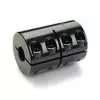
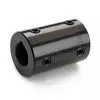
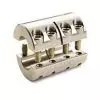
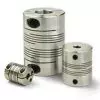
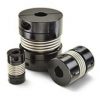
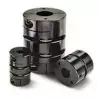
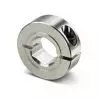
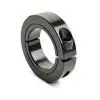
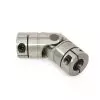
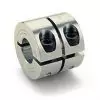 Short Rigid Couplings
Short Rigid Couplings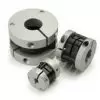 Controlflex Couplings
Controlflex Couplings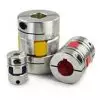 Jaw Couplings
Jaw Couplings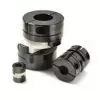 Oldham Couplings
Oldham Couplings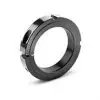 Bearing Locknuts – TCN
Bearing Locknuts – TCN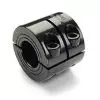 Double Wide Shaft Collars
Double Wide Shaft Collars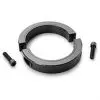 Heavy Duty Shaft Collars
Heavy Duty Shaft Collars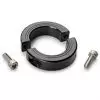 International Series Shaft Collars
International Series Shaft Collars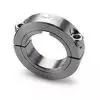 Keyed Shaft Collars
Keyed Shaft Collars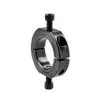 Mountable Shaft Collars
Mountable Shaft Collars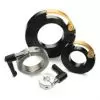 Quick Clamping Shaft Collars
Quick Clamping Shaft Collars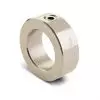 Set Screw Shaft Collars
Set Screw Shaft Collars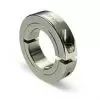 Thin Line Shaft Collars
Thin Line Shaft Collars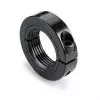 Threaded Shaft Collars – Pacific International Bearing Products
Threaded Shaft Collars – Pacific International Bearing Products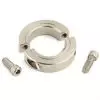 Two-Piece Shaft Collars
Two-Piece Shaft Collars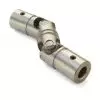 Friction Bearing Universal Joints
Friction Bearing Universal Joints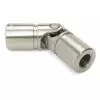 Needle Bearing Universal Joints
Needle Bearing Universal Joints

